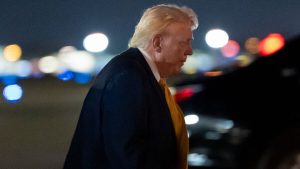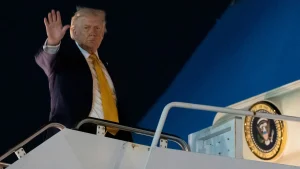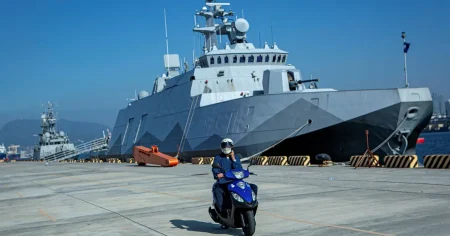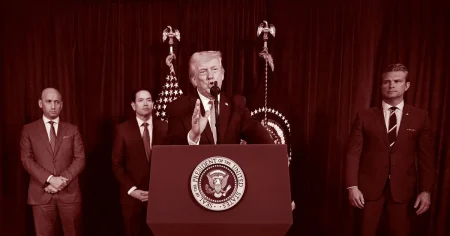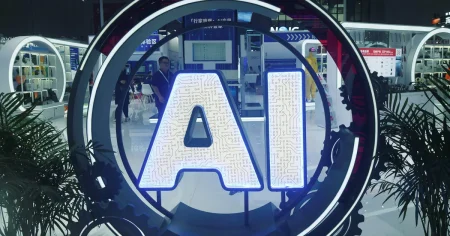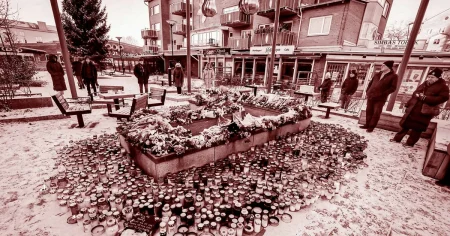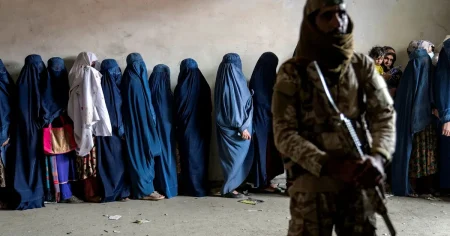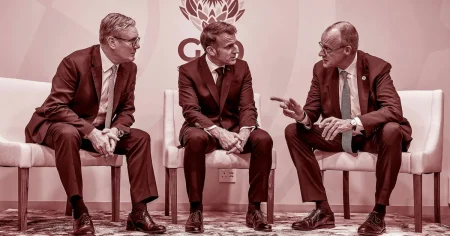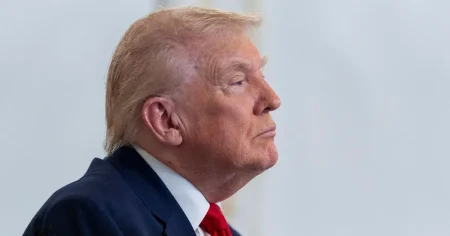The fragility and resilience of democracy were starkly illuminated in South Korea recently, as President Yoon Suk-yeol’s attempt to impose martial law sparked widespread resistance and a profound national reckoning. The incident, which began with an attempt to arrest opposition parliamentarians, unfolded with dramatic tension captured in a now-viral video. A woman confronts a soldier attempting to enter the parliament building, challenging his actions with a poignant cry: ”Aren’t you ashamed?” The soldier momentarily aims his weapon at her, but ultimately retreats, a testament to the power of individual courage in the face of authoritarian overreach. This single act of defiance encapsulates the vital role of ordinary citizens in safeguarding democratic principles.
Following the incident, President Yoon faced immediate and intense criticism, both domestically and internationally. Despite the looming threat of the military, the parliament successfully convened and conducted its business, further demonstrating the resilience of South Korean democratic institutions. In a calculated move to mitigate the fallout and avoid impeachment proceedings, President Yoon issued a public apology. However, the apology was perceived by many as a strategic maneuver rather than a genuine expression of remorse. This perception was reinforced by the subsequent actions of Yoon’s conservative People Power Party (PPP), which boycotted the impeachment vote, effectively shielding the President from immediate consequences. The opposition required the support of at least eight PPP members for the impeachment vote to succeed, leaving Yoon politically vulnerable but still in power.
However, the story doesn’t end with the failed impeachment attempt. Instead of retreating, President Yoon doubled down on his justification for the attempted imposition of martial law. In a subsequent address, he defended his actions, framing them as necessary to save the country from what he described as the parliament’s ”dictatorship.” He further escalated the situation by alleging that the opposition’s significant victory in the recent parliamentary elections was the result of interference from North Korea. This accusation, coupled with his claim of having sent the military to the National Election Commission to investigate alleged voter fraud during the night of the attempted martial law declaration, further inflamed the political tensions.
Yoon’s actions resonated deeply with South Korea’s history of authoritarianism and democratic struggle. The attempted imposition of martial law evoked the specter of the 1979 coup and the subsequent Gwangju Massacre, a brutal crackdown on pro-democracy demonstrators. These memories fueled the widespread public protests against Yoon’s actions and contributed to the growing criticism he faced, even within his own party. The historical context provided a stark reminder of the fragility of democratic gains and the constant vigilance required to protect them.
Although the PPP shielded Yoon from immediate impeachment, the party publicly distanced itself from his actions. While initially, some speculated that the PPP’s inaction was intended to allow Yoon to resign gracefully, the party’s stance subsequently hardened. The PPP leader, Han Dong-hoon, declared that impeachment was the only remaining option, signaling a significant shift in the political landscape. Even within the military, there were signs of resistance to Yoon’s actions. Reports emerged that soldiers deployed to enforce the state of emergency were demonstrably reluctant to use force. A parliamentarian noted the soldiers’ apparent unwillingness to engage with peaceful protestors, and the head of the special forces later revealed that he had ordered the soldiers to load their weapons with blanks. The fact that South Korea has a conscripted army likely played a significant role in the soldiers’ reluctance to participate in suppressing civilian dissent.
The events in South Korea underscore the vital importance of a multi-faceted defense of democratic values. From a lone woman confronting an armed soldier, to parliamentarians defying executive overreach, to soldiers refusing to employ force against their fellow citizens, the collective resistance to President Yoon’s actions exemplifies the diverse and interconnected nature of democratic safeguards. This collective defense, encompassing civilian courage, political accountability, and military restraint, paints a powerful picture of a young democracy actively striving to protect its foundations. It’s a testament to the enduring power of democratic ideals and the ongoing struggle to maintain them.


